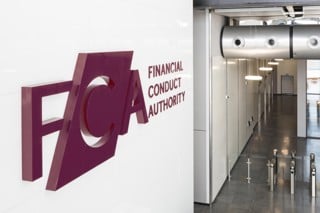Bill Brower, Solera’s SVP of industry relations & claims, insists regulation applies to the B2B world as much as within the consumer space.
It may have started with changing the plastic straws at restaurants to paper ones, but sustainability is expected to continue trending in a much bigger way this year within the automotive industry. This is because regulation is catching up.
The EUs Corporate Sustainability Reporting Directive (CSRD) took effect this month, which applies to any business that meets the criteria laid out by the regulation and works in the EU. This means any business who has operations in the EU must take note. And the automotive space is no exception. Everyone across the industry, from insurers to bodyshops must ensure they’re keeping up with requirements and meeting them if necessary.
Making insurance greener
A global survey by Solera recently uncovered 75% of drivers are willing to switch insurance providers for a greener policy. While some companies might look at this as a challenge to overcome, it’s more aligned with a golden opportunity for insurance companies to prioritise sustainability goals.
AM Awards - new for 2024 is The Sustainability Award. Open to car dealers and vehicle manufacturers, entrants could be businesses which can demonstrate strategic planning and robust steps being taken to help build a more sustainable and better future for themselves and their surrounding community. Aspects the judges will look for span from reducing energy consumption to waste reduction to green procurement and encouraging a green-minded culture within the workforce. Enter here.
While 99% of insurers recognise the importance of prioritising sustainability, they are up against some seemingly large hurdles. However, technology now exists that provides insurers with valuable data insights on their carbon footprint and areas that can both reduce and measure it.
This allows insurers to compare the CO2 emissions associated with actions such as repairing vehicle parts versus replacing them, enabling them to work with garages to make well-informed decisions on how to repair a vehicle in the greenest way.
Green parts revolution
There's a lingering stigma about using car parts, with consumers often associating "used" with unusable or inferior quality. Yet, the transition to used car parts could be transformative. Research indicates that a mere 2% rise in repair rates across Europe could slash annual CO2 emissions by 30,000 tons.
To tackle this misconception, insurers and body shops have a responsibility to educate their customers. Used car parts don't equate to scrap; they don't compromise safety. They can be more efficient, sustainable and in some case more cost-effective.
For many jobs, such as bumper or windscreen issues, two very common car complaints, repairing works much better and grants a second lease of life to items that might otherwise find their way to a landfill. Overall, repairing is the greener choice for everyone involved.
It’s all about data
Better tracking and management of emissions data can provide the information needed to make informed sustainability decisions. For example, using used car parts for repairs will make the repairs process more sustainable as well as cutting down on CO2 emissions in the manufacturing process.
There are also tools available to improve measurement of metrics like Scope 3 emissions, which can make a huge difference in implementing effective carbon footprint reduction initiatives.
Bill Brower, senior vice president of industry relations & North America, heads Solera’s claims, repair, vehicle and fleet business. With over 30 years of experience, Bill has led claims teams for companies such as Nationwide Insurance, Liberty Mutual Insurance, LexisNexis Risk Solutions and now leads Solera’s automotive sustainability initiatives worldwide.





















Login to comment
Comments
No comments have been made yet.